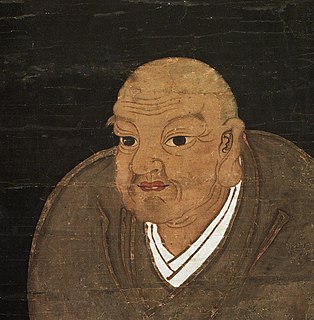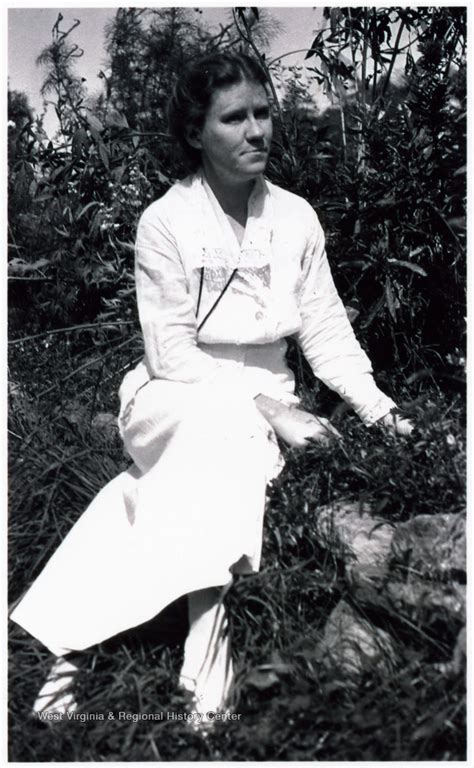A Quote by Washington Irving
Nature seems to delight in disappointing the assuduities of art, with which it would rear dulness to maturity, and to glory in the vigor and luxuriance of her chance productions. She scatters the seeds of genius to the winds, and though some may perish among the stony places of the world, and some may be choked by the thorns and brambles of early adversity, yet others will now and then strike root even in the clefts of the rock, struggle bravely up into sunshine, and spread over their sterile birthplace all the beauties of vegetation.
Quote Topics
Adversity
Among
Art
Beauties
Birthplace
Bravely
Chance
Delight
Disappointing
Early
Even
Genius
Glory
Her
Maturity
May
Nature
Now
Now And Then
Others
Over
Perish
Places
Productions
Rear
Rock
Root
Seeds
Seems
She
Some
Spread
Sterile
Strike
Struggle
Sunshine
Then
Thorns
Though
Up
Vegetation
Vigor
Which
Will
Winds
World
Would
Related Quotes
And there's a wonderful parable in the New Testament: The sower scatters seeds. Some seeds fall in the pathway and get stamped on, and they don't grow. Some fall on the rocks, and they don't grow. But some seeds fall on fallow ground, and they grow and multiply a thousandfold. Who knows where some good little thing that you've done may bring results years later that you never dreamed of?
The universal nature has no external space; but the wondrous part of her art is that though she has circumscribed herself, everything which is within her which appears to decay and to grow old and to be useless she changes into herself, and again makes other new things from these very same, so that she requires neither substance from without nor wants a place into which she may cast that which decays. She is content then with her own space, and her own matter, and her own art.
The vegetable life does not content itself with casting from the flower or the tree a single seed, but it fills the air and earth with a prodigality of seeds, that, if thousands perish, thousands may plant themselves, that hundreds may come up, that tens may live to maturity; that, at least one may replace the parent.
Every man, however hopeless his pretensions may appear, has some project by which he hopes to rise to reputation; some art by which he imagines that the attention of the world will be attracted; some quality, good or bad, which discriminates him from the common herd of mortals, and by which others may be persuaded to love, or compelled to fear him.
Society, as we have constituted it, will have no place for me, has none to offer; but Nature, whose sweet rains fall on unjust and just alike, will have clefts in the rocks where I may hide, and secret valleys in whose silence I may weep undisturbed. She will hang the night with stars so that I may walk abroad in the darkness without stumbling, and send the wind over my footprints so that none may track me to my hurt: she will cleance me in the great waters, and with bitter herbs make me whole.
Feminist art is not some tiny creek running off the great river of real art. It is not some crack in an otherwise flawless stone. It is, quite spectacularly I think, art which is not based on the subjugation of one half of the species. It is art which will take the great human themes -love, death, heroism, suffering, history itself -and render them fully human. It may also, though perhaps our imaginations are so mutilated now that we are incapable even of the ambition, introduce a new theme, one as great and as rich as those others -should we call it joy?
You may command Nature to the extent only in which you are willing to obey her. You cannot intelligently obey that which you do not comprehend. Therefore I also say, ask of Nature that you may be one with her and she will whisper her secrets to you to the extent in which you are prepared to listen. Seek to be alone much to commune with Nature and be thus inspired by her mighty whisperings within your consciousness. Nature is a most jealous god, for she will not whisper her inspiring revelations to you unless you are absolutely alone with her.
Rhoda comes now, having slipped in while we were not looking. She must have made a tortuous course, taking cover now behind a waiter, now behind some ornamental pillar, so as to put off as long as possible the shock of recognition, so as to be secure for one more moment to rock her petals in her basin. We wake her. We torture her. She dreads us, she despises us, yet she comes cringing to our sides because for al our cruelty there is always some name, some face which sheds a radiance, which lights up her pavements and makes it possible for her to replenish her dreams.
Doubtless almost any intense emotion may open our 'inward eye' to the beauty of reality. Falling in love appears to do it for some people. The beauties of nature or the exhilaration of artistic creation does it for others. Probably any high experience may momentarily stretch our souls up on tiptoe, so that we catch a glimpse of that marvelous beauty which is always there, but which we are not often tall enough to perceive.
The complaint, therefore, that all topicks are preoccupied, is nothing more than the murmur of ignorance or idleness, by which some discourage others, and some themselves; the mutability of mankind will always furnish writers with new images, and the luxuriance of fancy may always embellish them with new decorations.
One thing we may be sure of, however: For the believer all pain has meaning; all adversity is profitable. There is no question that adversity is difficult. It usually takes us by surprise and seems to strike where we are most vulnerable. To us it often appears completely senseless and irrational, but to God none of it is either senseless or irrational. He has a purpose in every pain He brings or allows in our lives. We can be sure that in some way He intends it for our profit and His glory.
I've found that there is always some beauty left-in nature, sunshine, freedom, in yourself; these can all help you. Look at these things, then you find yourself again, and God, and then you regain your balance. And whoever is happy will make others happy too. He who has courage and faith will never perish in misery!



































